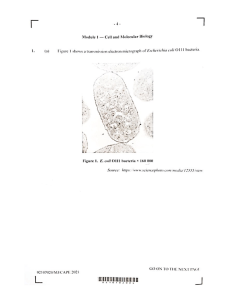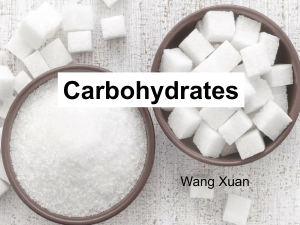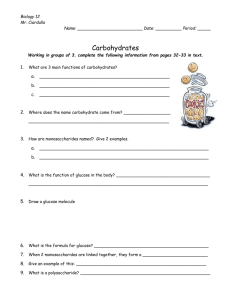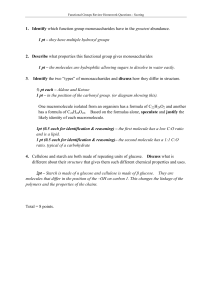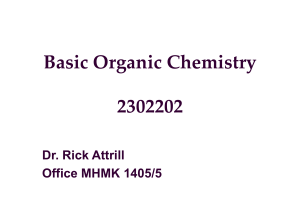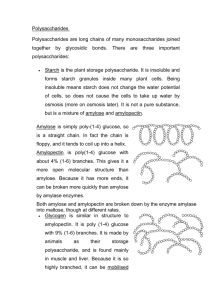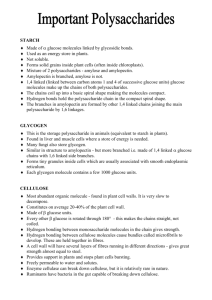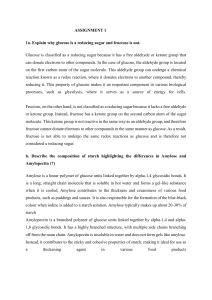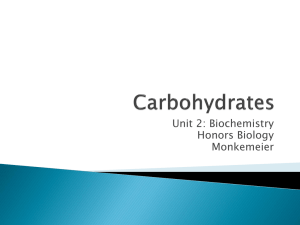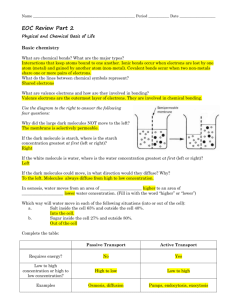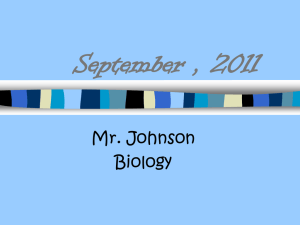Chapter 25. Biomolecules: Carbohydrates
advertisement
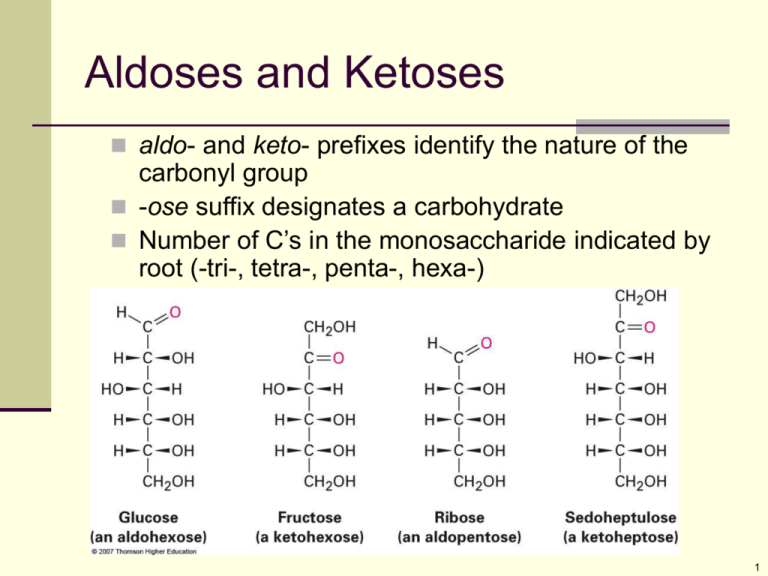
Aldoses and Ketoses aldo- and keto- prefixes identify the nature of the carbonyl group -ose suffix designates a carbohydrate Number of C’s in the monosaccharide indicated by root (-tri-, tetra-, penta-, hexa-) 1 Stereochemical Reference The reference compounds are the two enantiomers of glyceraldehyde, C3H6O3 A compound is “D” if the hydroxyl group at the chirality center farthest from the oxidized end of the sugar is on the right or “L” if it is on the left. D-glyceraldehyde is (R)-2,3-dihydroxypropanal L-glyceraldehyde is (S)-2,3-dihydroxypropanal 2 Naturally Occurring DSugars 3 4 Converting to Proper Structures Rings are usually drawn placing the hemiacetal oxygen atom at the right rear 5 Glucose is a precursor 7 Hemiacetals in Disaccharides Maltose and cellobiose are both reducing sugars The and anomers equilibrate, causing mutarotation 8 Sucrose “Table Sugar” is pure sucrose, a disaccharide that hydrolyzes to glucose and fructose Not a reducing sugar and does not undergo mutarotation (not a hemiacetal) Connected as acetal from both anomeric carbons (aldehyde to ketone) 9 Cellulose Consists of thousands of D-glucopyranosyl 1,4- -glucopyranosides as in cellobiose Cellulose molecules form a large aggregate structures held together by hydrogen bonds Cellulose is the main component of wood and plant fiber 10 Starch and Glycogen Starch is a 1,4--glupyranosyl-glucopyranoside polymer It is digested into glucose There are two components amylose, insoluble in water – 20% of starch 1,4’--glycoside polymer amylopectin, soluble in water – 80% of starch 11 Amylopectin More complex in structure than amylose Has 1,6--glycoside branches approximately every 25 glucose units in addition to 1,4--links 12 Glycogen A polysaccharide that serves the same energy storage function in animals that starch serves in plants Highly branched and larger than amylopectin—up to 100,000 glucose units 13 14 15 16 (Sweet N Low) (Equal) (Sunett and Sweet One) (Splenda) (Aclame) p. 1006 17
